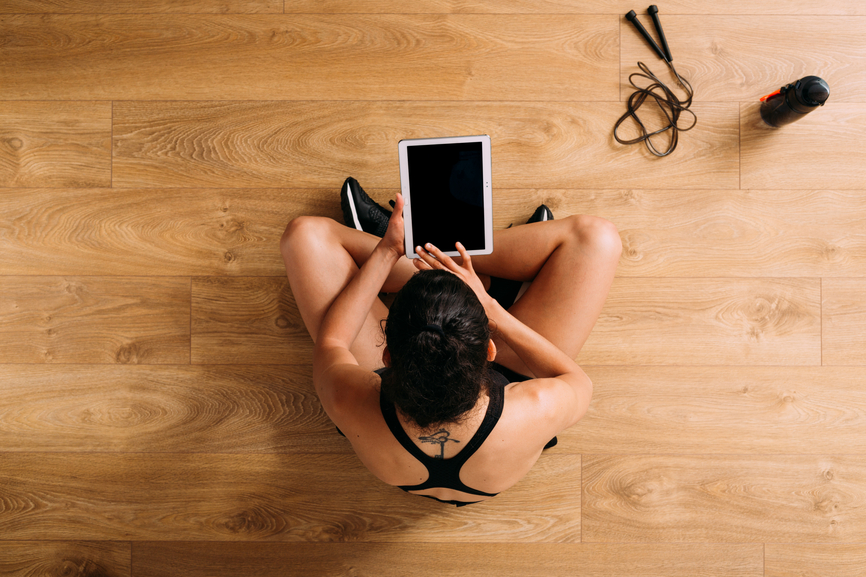While how much Jack Dorsey actually pledges to fight the pandemic remains to be seen, one thing is clear – his coronavirus quaranine routine and his wellness practices have got the attention of many Gen Zs. While investors have rightly soured on many of the CEOs who put their wellness routines front and center (Adam Neumann, Elizabeth Holmes, and, increasingly, Dorsey), the influence these new age leaders have had on culture and what it means to be well lives on.
Over the years, we had been hearing more and more about Jack Dorsey-esque wellness routines in our ethnography research with young people, from recent grads in San Francisco sharing the benefits of dopamine fasting, to college women sharing how they’re letting The Pattern app take the wheel and guide their decision making, to high school students in Manhattan telling us the Oura Ring (a sleep and activity tracker) is their aspirational tech product.
We’re researchers after all, so earlier this year we set out to explore more deeply and learn just how prevalent some of these new wellness attitudes and behaviors are. We found while they’re not quite mainstream, they’re not exactly niche either, at least not among Gen Zs.

First, some background. Every generation embraces self-betterment: Baby Boomers jazzercised, read self-help books and ate Atkins; Xers ran half marathons, hired life coaches and embraced The Secret; Millennials joined the self-care cults of Bikram, CrossFit and SoulCycle. Gen Zs are upping the ante by using a range of tools, from tracking technologies, to exploring psychedelics, to radically transcending their own biological limits.
Gen Zs are armed with information, innovative tools and technologies that monitor, track and test their development, and push them to the farthest limits of mind, body, and spirit. This self-optimization movement reveals a deeper agenda too: it gives Zs something to believe in at a time when religion is at an all-time low in the U.S. and Americans are on a collective search for meaning.
Back in February 2020, we conducted qualitative research with Gen Z influencers followed by quantitative research with a national sample of 1,030 Gen Zs age 13-24 and we discovered some context for this self-optimizing phenomenon, including:
- 84% believe there’s more to life that they haven’t explored
- 82% describe themselves as open-minded
- 75% are practicing some form of self-care
- 72% describe themselves as optimistic
- 53% are regularly on the lookout for sources, such as books and documentaries, on how to better themselves
Many Zs are open-minded, optimistic, and experimental strivers. They believe that making the world — and themselves — better is a choice and a challenge. They’re pushing themselves to reach their full potential and they believe in “practical magic,” and the idea that extraordinary things can happen in their lives as long as they put in the work. They value experience over material possessions, and believe that your higher self is something you need to earn, rather than buy.
Okay, so just how prevalent are the Jack Dorsey-esque wellness routines? There are a fair amount of Gen Zs already in this exploration. Take the following for example:
- Meditation – 36% have done it, 26% plan to do it
- Taken guidance from astrology readings/apps – 23% have done it, 20% plan to do it
- Used a CBD product – 24% have done it, 22% plan to
- Tried intermittent fasting – 23% have done it, 20% plan to
- Attended a spiritual retreat or workshop – 22% have done it, 23% plan to
- Taken magic mushrooms (age 21-24) – 20% have done it, 24% plan to
We had been hearing a lot about micro-dosing in particular as a self-optimizing practice. Micro-dosing is imbibing tiny doses of psychedelics, such as LSD and psilocybin, and has slowly been making its way into the mainstream as young people seek out ways to feel more focused, creative and present. In our research we learned it’s absolutely not mainstream, but it’s increasingly in the Gen Z conversation and 18% of Gen Zs age 21-24 told us they’re planning to try it.
So, are some Gen Zs making like Jason Dorsey during the quarantine? Absolutely.
“I feel like we’re so overloaded with information on how to fix or better ourselves, even with just Snapchat articles and Buzzfeed lists. So I think media plays a big part of it too…anyway, right now, sleep apps are popular because I go to a competitive school and we’re all trying to be the best we can be.”—MacKay, 17, New York City
“For us, spirituality is just going to yoga or doing a meditation class or these days just seeing wellness posts on Instagram is a way we connect with community, but it’s also a way of bettering ourselves.”—Cami, 21, Los Angeles
Front Row Insight
Thanks to social media, Zs have always been under pressure to achieve and demonstrate accomplishments in all aspects of their lives. Gen Zs are seeking products and experiences that upgrade all aspects of self, including physical, financial, social, professional and spiritual. They’re chasing the mystical power of something bigger than themselves. Campaigns, activations, and content that serves the self-optimizer side of Zs, even during this pandemic, will capture their attention.
*Front Row Insights and Strategy, Nationally representative survey of N=1,030 respondents age 13-24, February 2020 along with perspectives from qualitative research interviews conducted among Gen Z influencers in January and March 2020






